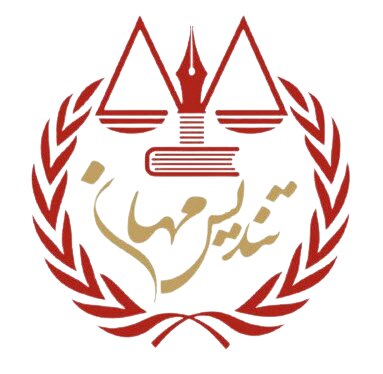Best Antitrust Lawyers in Iran
Share your needs with us, get contacted by law firms.
Free. Takes 2 min.
Or refine your search by selecting a city:
List of the best lawyers in Iran
About Antitrust Law in Iran
Antitrust law in Iran is designed to promote fair competition and prevent monopolistic practices that can harm consumers and businesses. The main legislation governing antitrust in Iran is the Competition Law, which aims to protect the market from anti-competitive behavior and ensure a level playing field for all market participants.
Why You May Need a Lawyer
You may need a lawyer for antitrust issues in Iran if you believe your rights have been violated by anti-competitive practices, such as price-fixing, bid-rigging, or market allocation. A lawyer can help you navigate the legal complexities of antitrust law, protect your interests, and ensure that you receive fair treatment under the law.
Local Laws Overview
In Iran, the Competition Law prohibits agreements and practices that restrict competition, abuse of dominant market positions, and mergers that may substantially lessen competition. The Competition Commission of Iran is responsible for enforcing these laws and ensuring compliance with antitrust regulations.
Frequently Asked Questions
Q: What types of practices are prohibited under Iranian antitrust law?
A: Iranian antitrust law prohibits price-fixing, bid-rigging, market allocation, and other anti-competitive practices that harm market competition.
Q: How can I report antitrust violations in Iran?
A: You can report antitrust violations to the Competition Commission of Iran, which is responsible for investigating and enforcing antitrust laws in the country.
Q: What are the penalties for violating antitrust laws in Iran?
A: Violating antitrust laws in Iran can result in fines, penalties, and other sanctions imposed by the Competition Commission.
Q: Can individuals and businesses file antitrust lawsuits in Iran?
A: Yes, individuals and businesses can file antitrust lawsuits in Iran to seek compensation for damages caused by anti-competitive practices.
Q: Are there any exemptions to antitrust laws in Iran?
A: Antitrust laws in Iran may have exemptions for certain industries or agreements that are deemed to benefit consumers or the economy.
Q: How long does an antitrust investigation take in Iran?
A: The duration of an antitrust investigation in Iran can vary depending on the complexity of the case and the cooperation of the parties involved.
Q: Can antitrust cases be settled out of court in Iran?
A: Yes, parties involved in antitrust cases in Iran may choose to settle their disputes out of court through negotiations or alternative dispute resolution mechanisms.
Q: Is there a statute of limitations for filing antitrust claims in Iran?
A: The statute of limitations for filing antitrust claims in Iran may vary depending on the specific circumstances of the case and the relevant laws.
Q: How can I find a reliable antitrust lawyer in Iran?
A: You can seek recommendations from legal professionals, professional organizations, or online legal directories to find a reliable antitrust lawyer in Iran.
Q: What are the key considerations for hiring an antitrust lawyer in Iran?
A: When hiring an antitrust lawyer in Iran, consider their experience, expertise, reputation, and fees to ensure that you receive quality legal representation for your case.
Additional Resources
For more information on antitrust laws and regulations in Iran, you can visit the official website of the Competition Commission of Iran or seek guidance from legal professionals specializing in antitrust law.
Next Steps
If you believe your rights have been violated under antitrust laws in Iran, consult with a qualified lawyer to assess your legal options, protect your interests, and seek redress for any damages incurred. It is essential to act promptly and seek legal assistance to address antitrust issues effectively.
Lawzana helps you find the best lawyers and law firms in Iran through a curated and pre-screened list of qualified legal professionals. Our platform offers rankings and detailed profiles of attorneys and law firms, allowing you to compare based on practice areas, including Antitrust, experience, and client feedback.
Each profile includes a description of the firm's areas of practice, client reviews, team members and partners, year of establishment, spoken languages, office locations, contact information, social media presence, and any published articles or resources. Most firms on our platform speak English and are experienced in both local and international legal matters.
Get a quote from top-rated law firms in Iran — quickly, securely, and without unnecessary hassle.
Disclaimer:
The information provided on this page is for general informational purposes only and does not constitute legal advice. While we strive to ensure the accuracy and relevance of the content, legal information may change over time, and interpretations of the law can vary. You should always consult with a qualified legal professional for advice specific to your situation.
We disclaim all liability for actions taken or not taken based on the content of this page. If you believe any information is incorrect or outdated, please contact us, and we will review and update it where appropriate.
Browse antitrust law firms by city in Iran
Refine your search by selecting a city.

















